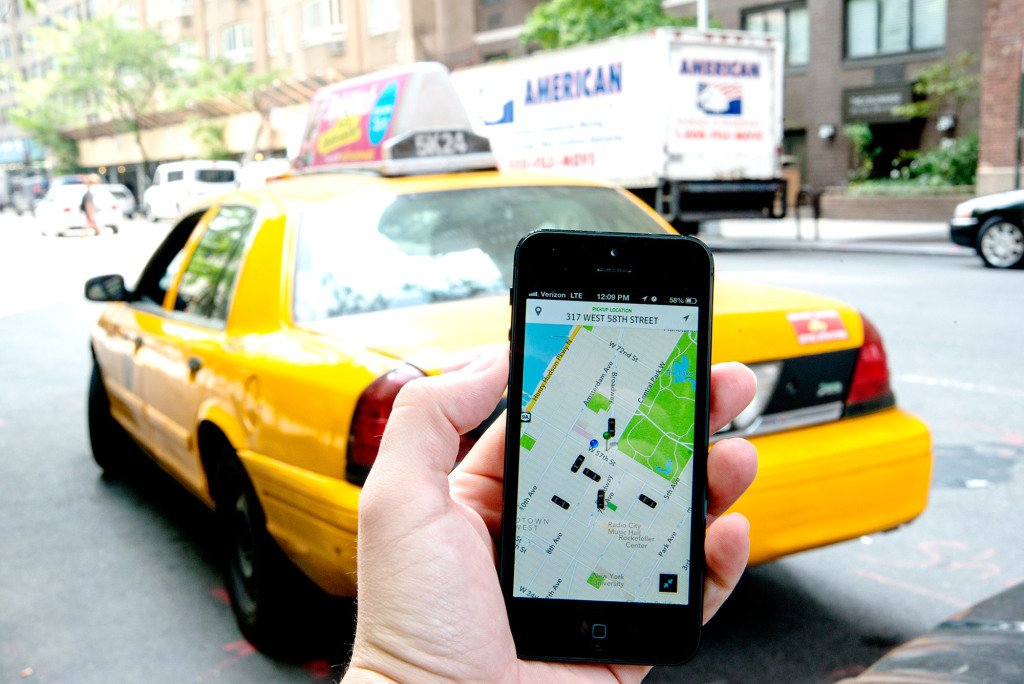Uber - a taxi service?
December 25, 2017 | Expert Insights

European Union's top court has now ruled that technology giant Uber will now be classified as a transport service in the region and will henceforth be subjected to stricter regulations and licensing within the EU as a taxi operator.
This will be a blow Uber, that has already been bogged down by controversies in 2017.
Background
Uber, an American technology company, that offers ride-sharing services, is also one of the most successful companies in the world.
However, a series of controversies that have plagued the company in 2017. This includes claims by former employees about the working conditions within the company. A blog by a former employee Susan Fowler about the sexual harassment rampant at Uber went viral. This led to Uber firing more than 20 members of its staff and taking action against others following a review of more than 200 HR complaints that included harassment and bullying.
According to media reports, its value has dropped from $60 billion at the beginning of this year to around $50 billion by April 2017. Following the many controversies, Kalanick was forced to resign from his position. The company then made an offer to Dara Khosrowshahi to become the company’s next Chief Executive Officer. Prior to that, Khosrowshahi was the CEO of Expedia, a travel company.
SoftBank Group Corp is a Japanese multinational conglomerate corporation established on September 3, 1981, and headquartered in Tokyo, Japan. SoftBank Corp has invested in ride-sharing app like Grab in the past.
Analysis
European Union's top court has now ruled that technology giant Uber will now be classified as a transport service in the region and will henceforth be subjected to stricter regulations and licensing within the EU as a taxi operator.
The decision was made after a group of taxi drivers from Barcelona challenged Uber in EU’s top court. It cannot be appealed against. Uber for its part had argued that it was a ride aggregator service and not a transportation service. It said that it simply was an intermediary between drivers and customers looking for a ride. The EU rules regulating online services is far less restrictive.
In its ruling, the ECJ said an “intermediation service”, “the purpose of which is to connect, by means of a smartphone application and for remuneration, non-professional drivers using their own vehicle with persons who wish to make urban journeys, must be regarded as being inherently linked to a transport service and, accordingly, must be classified as ‘a service in the field of transport’ within the meaning of EU law”.
“Consequently, such a service must be excluded from the scope of the freedom to provide services in general as well as the directive on services in the internal market and the directive on electronic commerce,” the ruling said.
“It follows that, as EU law currently stands, it is for the member states to regulate the conditions under which such services are to be provided in conformity with the general rules of the treaty on the functioning of the EU.”
An Uber spokesperson said: "This ruling will not change things in most EU countries where we already operate under transportation law. However, millions of Europeans are still prevented from using apps like ours. As our new CEO has said, it is appropriate to regulate services such as Uber and so we will continue the dialogue with cities across Europe. This is the approach we'll take to ensure everyone can get a reliable ride at the tap of a button."
Assessment
Our assessment is that this is undoubtedly a blow for Uber as operations in Europe constitutes a large portion of its revenue and profits. Other regions across the world could also adopt a similarly strict hardline against Uber making it difficult for the tech giant to expand. This is yet another blow for the company whose brand has been negatively affected in 2017. Are we looking at the beginning of the end for Uber?








Comments